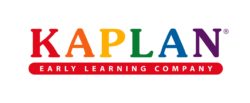SNAP Families Now Categorically Eligible for Head Start
Biden-Harris Administration Officials Celebrate Move to Make Enrollment in Head Start Programs Easier for Families
Today, the U.S. Department of Health and Human Services’ Administration for Children and Families (ACF) Assistant Secretary January Contreras and the U.S. Department of Agriculture’s (USDA) Food, Nutrition, and Consumer Services Deputy Undersecretary Stacy Dean participated in a family enrollment event for both the Head Start early care and education program and benefits for food purchases through the Supplemental Nutrition Assistance Program (SNAP) with the Los Angeles County Office of Education.
This event highlighted the joint announcement of the new policy to make it easier for families to enroll in Head Start programs by determining their eligibility simply by showing proof of SNAP eligibility. Now, families who receive benefits for food purchases through USDA’s SNAP will have an easier path to enroll in Head Start early education and child care programs.
This alignment underscores the Biden-Harris administration’s commitment to child well-being and reduces the burden on families so they do not have to verify their income twice for programs with similar requirements. This supports better coordination for families across federal public benefit programs and exemplifies the spirit of President Biden’s Executive Order on Transforming Federal Customer Experience and Service Delivery to Rebuild Trust in Government.
“We are thrilled to provide families with a simpler path to enroll in Head Start. If there is one thing parents need, it’s more time and less paperwork. Now families can use eligibility for SNAP benefits to enroll in Head Start, without having to document their income again,” said ACF Assistant Secretary January Contreras.
“When you help families fulfill their children’s basic needs, you create the possibility for children to thrive,” said Stacy Dean, deputy undersecretary for USDA’s Food, Nutrition, and Consumer Services. “This program collaboration will help reduce the administrative burdens that often prevent families from receiving important and much-needed federal assistance.”
Serving children from birth to age five, Head Start programs partner with families to support children’s growth through a variety of services, including early learning and development, health and nutrition, and family well-being. This program update aligns with the mission of Head Start, and also with the ACF Strategic Plan to advance equity by reducing structural barriers to programs and promoting innovation within ACF and between federal agencies.
“Now, more than ever, is the time to do what it takes to ensure that those who can benefit from Head Start programs have equitable access to the program,” said Office of Head Start Director Dr. Bernadine Futrell. “SNAP beneficiaries join those whose families receive other public benefits including Supplemental Security Income (SSI) and Temporary Assistance for Needy Families (TANF), children in foster care, and those families experiencing homelessness, in a simplified path to Head Start enrollment.”
ACF’s Head Start programs promote the school readiness of infants, toddlers, and preschool-aged children from low-income families through 1,600 agencies in local communities. Services are provided in a variety of settings, including centers, family child care, and children’s own homes. Head Start programs also engage parents or other key family members in positive relationships, with a focus on family well-being. As part of the U.S. Department of Health and Human Services led by Xavier Becerra, ACF promotes the economic and social well-being of families, children, youth, individuals, and communities who are resilient, safe, healthy, and economically secure.
Learn more at https://www.acf.hhs.gov/ohs.
USDA’s Food and Nutrition Service (FNS) leverages its 15 nutrition assistance programs to ensure that children, low-income individuals, and families have opportunities for a better future through equitable access to safe, healthy, and nutritious food, while building a more resilient food system. Under the leadership of Secretary Tom Vilsack, FNS is fighting to end food and nutrition insecurity for all through programs such as SNAP, school meals, and Women, Infants, and Children (WIC). FNS also provides science-based nutrition recommendations through the co-development of the Dietary Guidelines for Americans. To learn more, visit www.fns.usda.gov and follow @USDANutrition.
Learn more at http://www.fns.usda.gov/SNAP.
https://georgia.gov/apply-snap-supplemental-nutrition-assistance-program



























